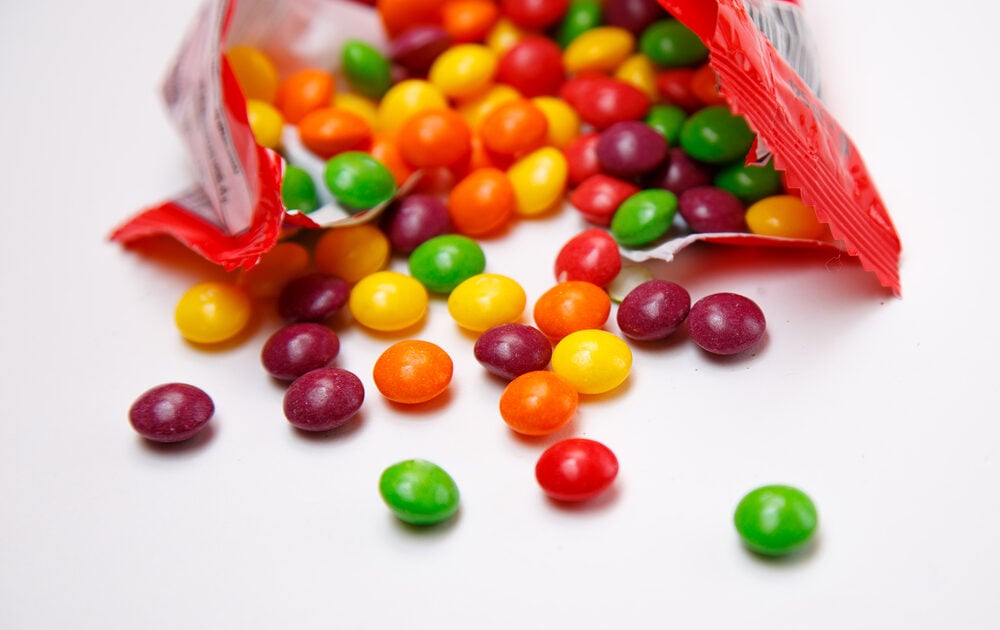You May Still ‘Taste the Rainbow’, but You Won’t See It: Mars, Inc. to Remove Artificial Ingredients

Mars, Incorporated joins a fast-growing list of manufacturers eschewing artificial ingredients. The company announced last week that it will remove artificial colors from its catalog of more than 50 brands including best-selling candy items M&M’s and Skittles, best known for their artificially bright colors. Mars says the change will take about five years to implement.
While not banned in the U.S., artificial colors like Yellow 5 and Red 40 have been banned in the EU for their link to behavioral issues in children.
“We’re in the business of satisfying and delighting the people who love our products,” Grant F. Reid, President and CEO of Mars, Incorporated said in a statement. “Eliminating all artificial colors from our human food portfolio is a massive undertaking, and one that will take time and hard work to accomplish. Our consumers are the boss and we hear them. If it’s the right thing to do for them, it’s the right thing to do for Mars.”
Nearly a year ago, Nestlé USA became the first U.S. candy company to commit to phasing out artificial ingredients. Numerous other food brands including Kraft, Taco Bell, Pizza Hut, and General Mills, have also begun taking steps to clean up their product offerings from artificial ingredients.
In a statement, Center for Science in the Public Interest President Michael F. Jacobson called the move a “huge advance for parents and children and should serve as a powerful incentive for the rest of the food industry to follow suit,” he said. “We appreciate the fact that Mars listened to our concerns and to the concerns of its customers and that it is exercising this kind of responsible leadership.”
CSPI is now calling on the FDA to “level the playing field” for other food manufacturers by banning artificial colors and dyes still commonly used in food.
“There is simply too much evidence demonstrating that these artificial dyes trigger inattention, hyperactivity, and other behavioral reactions in children,” said Jacobson. “The use of these neurotoxic chemicals to provide a purely cosmetic function in foods, particularly foods designed to appeal to children, must stop.”
Find Jill on Twitter and Instagram
Related on Organic Authority
Kellogg Plans to Remove Artificial Ingredients from Breakfast Foods
Can a Healthy Hot Pocket Ever Exist? Nestlé USA Drops Artificial Ingredients from Frozen Foods
Why Do Humans Love Artificial Colors in Food Anyway?
Bag of Skittles image via Shutterstock

